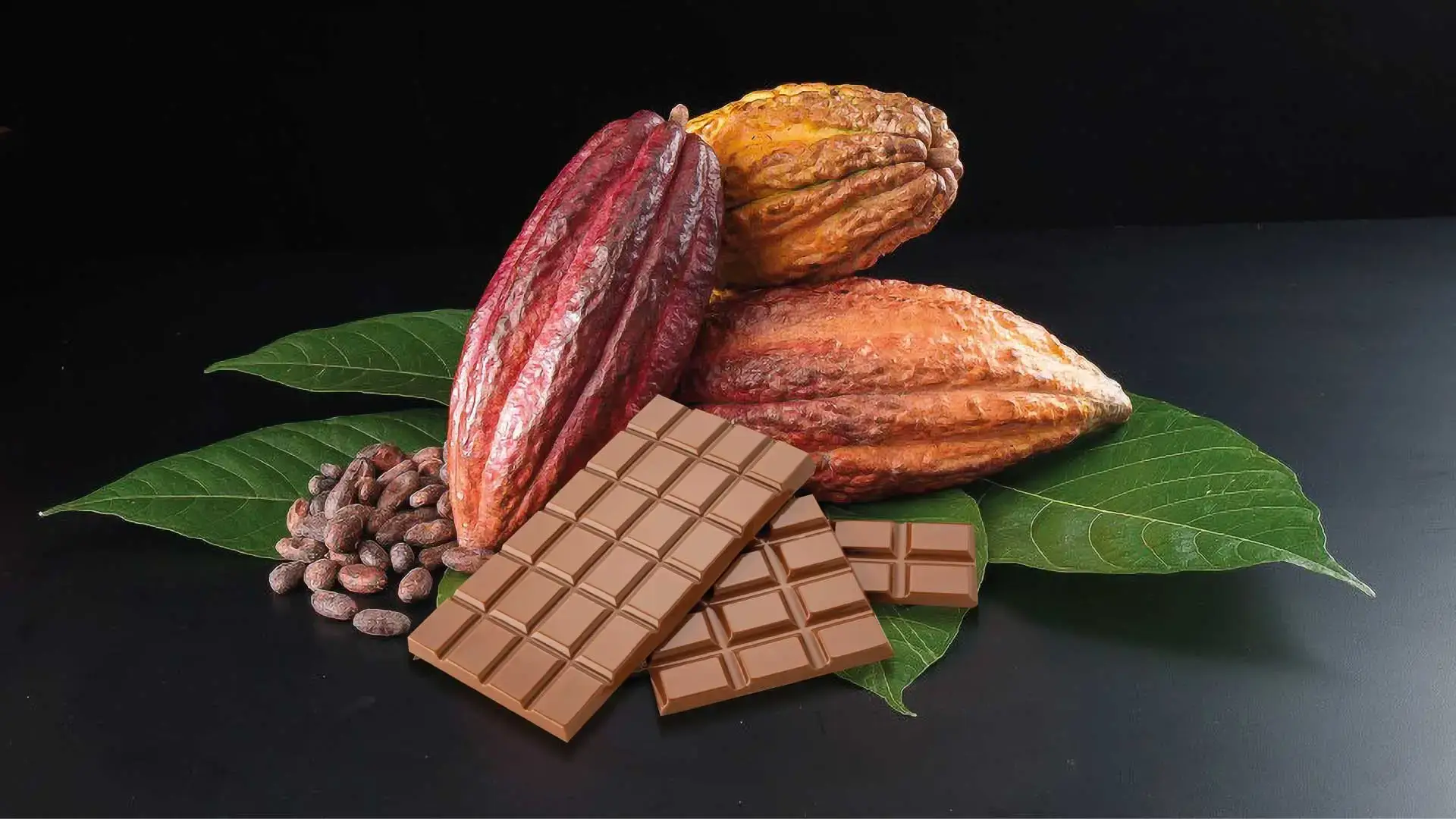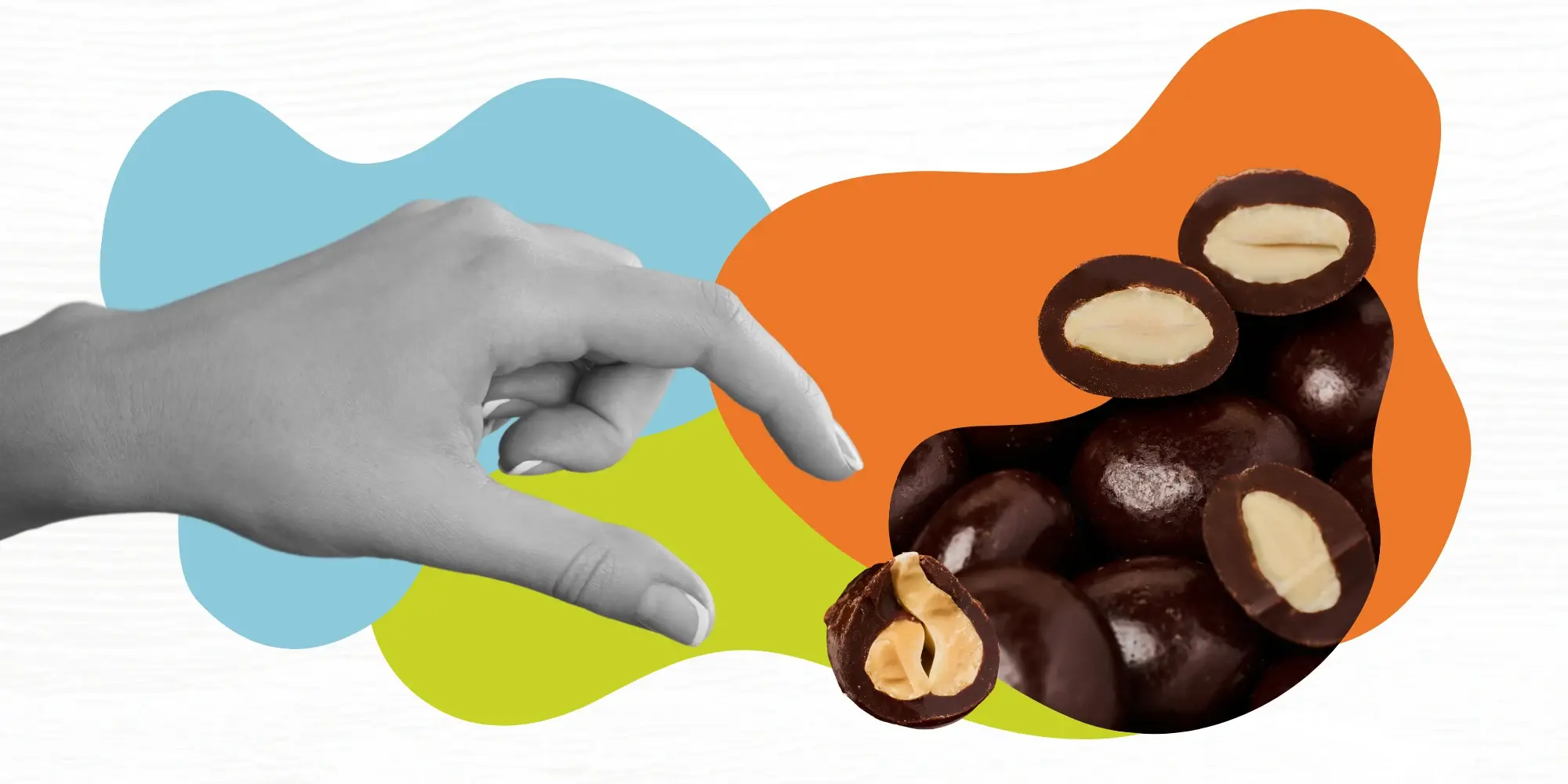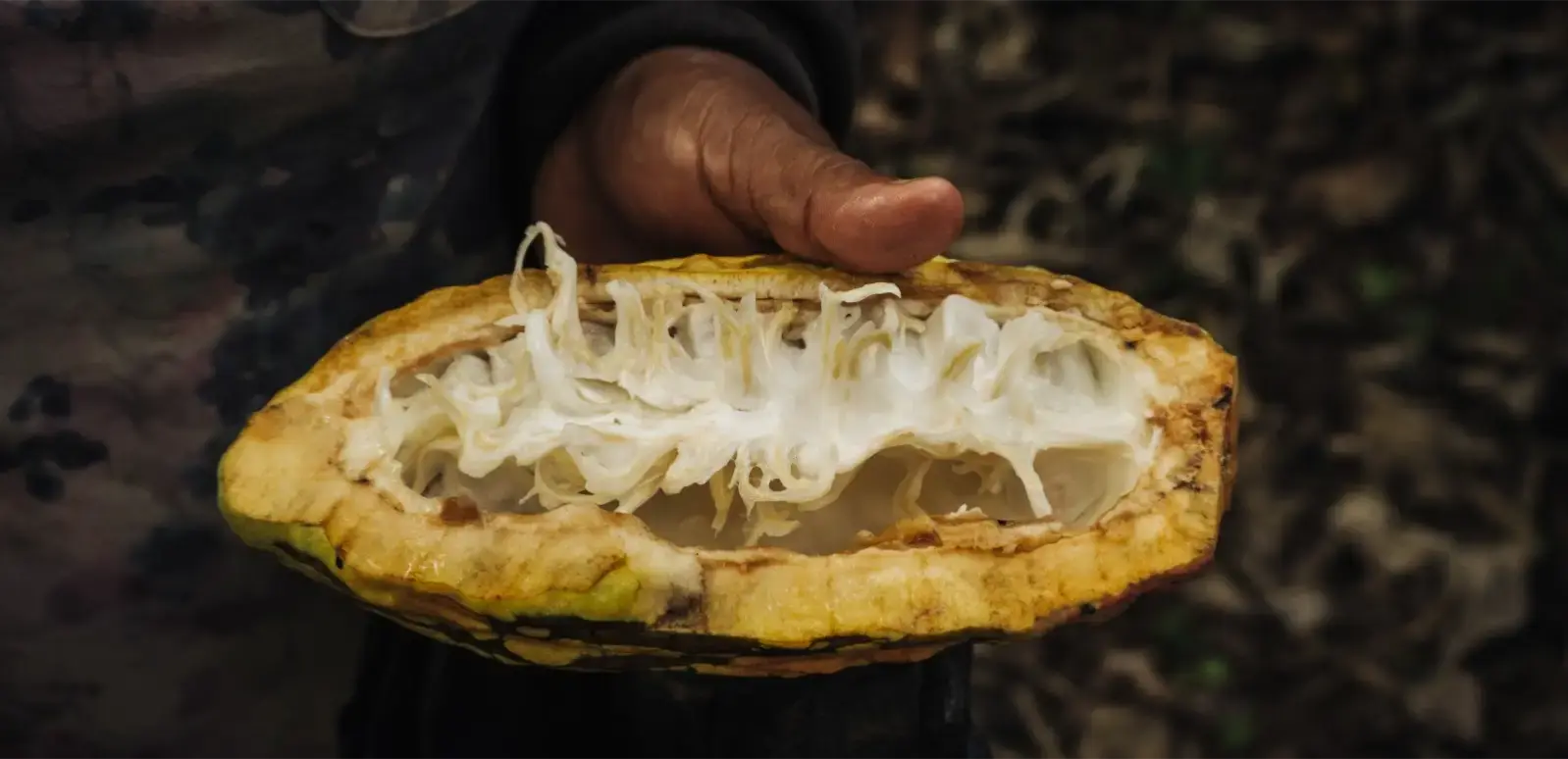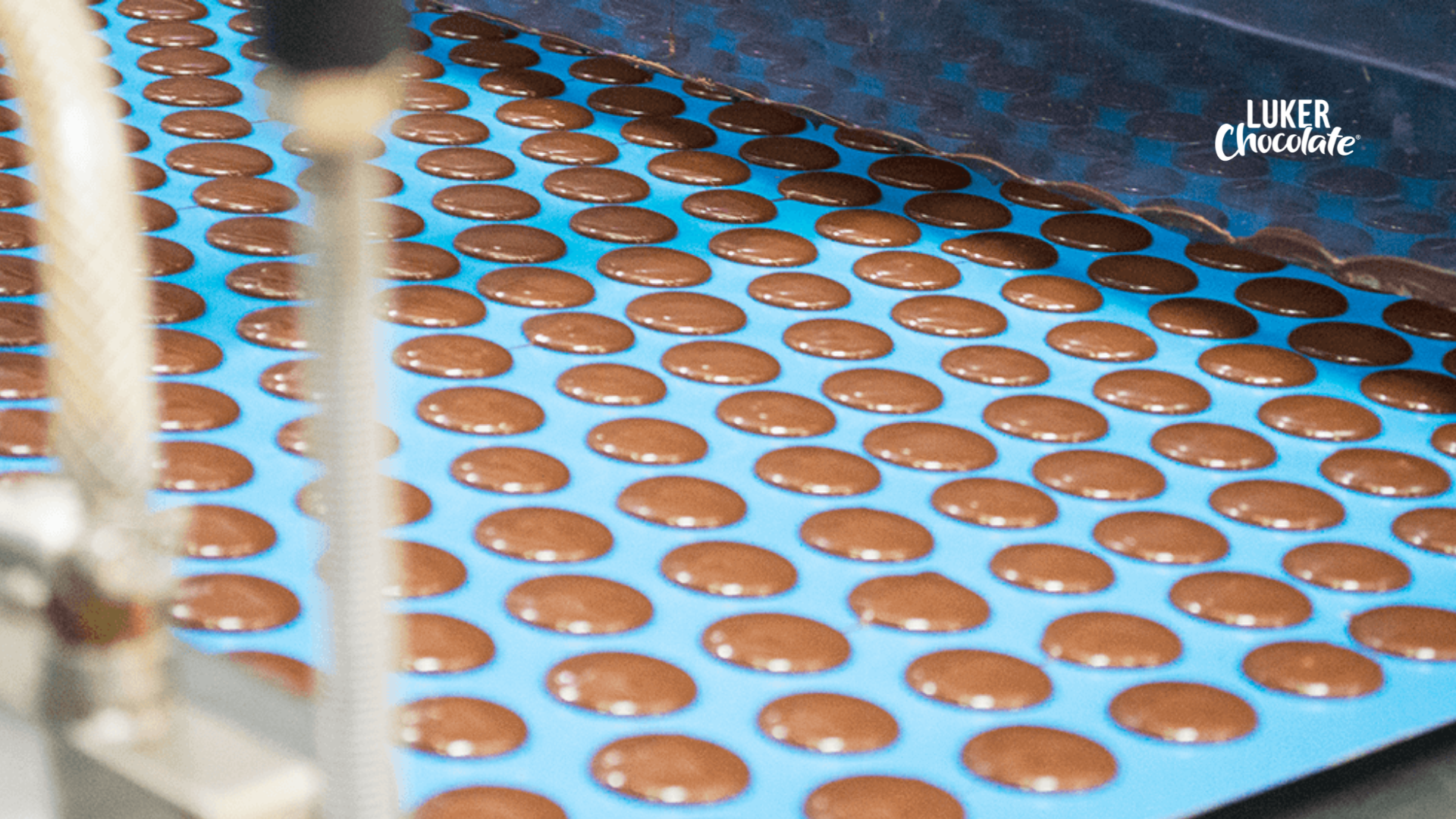>Check out tailored chocolate manufacturing solutions<
When selecting a confectionery manufacturer for your chocolate couvertures, it is crucial to evaluate the options for achieving market success and operational efficiency. The confectionery industry primarily uses two manufacturing service model approaches: turnkey and tolling. Understanding these methods and choosing the right one can impact the long-term success of your business.
Navigate the menu or keep on reading:
- The essentials of NPD in chocolate manufacturing
- What is turnkey manufacturing?
- What is tolling (contract) manufacturing?
- Turnkey vs tolling manufacturing
- Choosing the best manufacturing approach for your brand
The 5 essentials of NPD in chocolate manufacturing
- Initial Product Discussion: The first step in any NPD process is a detailed discussion about your product. This includes an in-depth look at ingredients, formulation, processing, and packaging needs. Clear articulation of product specifications ensures your manufacturer can meet your expectations. For instance, discussing the desired cocoa percentage and packaging type upfront can prevent future misalignments.
- Production Volume Planning: Estimating both initial and long-term production volumes is vital for understanding the scalability of your operations. Manufacturers must know if you plan to scale up production and whether they can accommodate your growth. For example, if your target market expands rapidly, you need a manufacturer capable of ramping up production quickly.
- Quality Standards: Maintaining high-quality standards is non-negotiable. Ensure your manufacturer complies with necessary certifications and safety standards, such as ISO 22000 or FSSC 22000. This includes everything from ingredient sourcing to the final product's quality assurance. Regular audits and quality checks can help maintain these standards.
- Timeline Planning: Coordinating product launch dates and production lead times is critical. Clear communication about your timeline helps in aligning the production schedule to meet market demands efficiently. For example, if you're planning a holiday season launch, ensure the manufacturer can meet increased demand.
- Cost and Pricing: Understanding your budget and pricing structure upfront is crucial. Transparent discussions about costs help in planning your budget more accurately and avoiding unexpected expenses. A detailed cost breakdown, including ingredient costs, labour, and packaging, can provide better financial clarity.
What is Turnkey Manufacturing?
Turnkey chocolate manufacturing involves the client providing specifications while the co-manufacturer handles the entire production process. This approach covers everything from design and engineering to procurement, manufacturing, quality control, packaging, and logistics.

Comprehensive Management: Turnkey manufacturing offers an all-encompassing approach, allowing you to focus on other aspects of your business. With the co-manufacturer managing the entire production process, you benefit from streamlined operations and reduced workload.
Advantages:
- Streamlined Process Management: The co-manufacturer controls all production aspects, ensuring efficiency and consistency.
- Reduced Client Workload: You can allocate resources to other critical business areas.
- Cost Transparency: A clear understanding of production costs helps in effective budget management.
- Ingredient Efficiency: Minimises ingredient waste, especially at lower volumes.
- Time Efficiency: Accelerates production timelines, allowing you to respond quickly to market demands.
- Quality Assurance: Robust quality control systems ensure high standards and consistency.
- Innovation and Expertise Leverage: Co-manufacturers offer insights into new production techniques and ingredient combinations.
⭐ B4B Approach
Luker Chocolate emphasizes the B4B (Business-for-Business) turnkey chocolate manufacturing model, moving beyond traditional B2B. This approach prioritizes long-term collaboration and innovation, B4B aims to foster deeper relationships that benefit both parties.
According to Luker's head of innovation, Sergio Restrepo, shifting from B2B to B4B can build a more sustainable business by focusing on shared goals, transparency, and continuous improvement. This model allows for a more integrated approach where both the supplier and the client work closely to achieve common objectives, ensuring quality and innovation throughout the process.
For a deeper understanding of the B4B approach and its benefits, read Sergio's detailed article in MIT Sloan Review: Shifting from B2B to B4B Can Build a More Sustainable Business.
What is Tolling Manufacturing?
Tolling manufacturing involves the client providing all raw materials, with the co-manufacturer charging a fee for processing. This method requires the client to manage everything from ingredient sourcing to packaging design.

Key Points:
- High Control: You maintain control over the supply chain, ensuring that you know exactly what goes into your product.
- Mitigated Risks: By having direct relationships with multiple co-manufacturers, you can ensure continuity in production, even if one supplier faces issues.
- Scalability: This approach allows for adjusting production volumes based on demand.
- Active Management: Requires significant coordination among multiple suppliers, which can be resource-intensive.
By understanding both turnkey and tolling manufacturing, you can make an informed decision about which approach best suits your business needs and strategic goals.
Comparing Turnkey and Tolling manufacturing approaches in NPD
When choosing between turnkey and tolling manufacturing, it is important to consider each method's key differences and benefits.
|
NPD Essential |
Turnkey Manufacturing |
Tolling Manufacturing |
|
Convenience |
High-convenience with comprehensive management by the manufacturing partner. |
Requires active management of multiple suppliers, reducing convenience. |
|
Scalability |
Scalable, allowing for adjustments in production volumes based on market demand. |
Scalable by adjusting relationships with multiple suppliers. |
|
Quality Control |
Provides consistent quality assurance by the co-manufacturer. |
Quality control is directly managed by the client at each production stage. |
|
Time Efficiency |
Ensures faster time-to-market with streamlined processes. |
May result in longer timelines due to the need for coordination among suppliers. |
|
Innovation |
Leverages the co-manufacturer’s expertise for innovative techniques and ingredients. |
Allows for experimentation with different suppliers and processes. |
|
Customization |
Offers customized and tailor-made processes and products. |
High customization: tailor each aspect to specific needs. |
|
Cost Management |
Simplifies cost management with transparent, all-inclusive pricing. |
Costs are managed directly by the client. |
|
Risk Management |
Higher risk due to dependency on a single manufacturing partner. |
Diversified risk with multiple suppliers; less impact if one fails. |
|
Supply Chain Management |
Simplifies logistics and communication with a single point of contact. |
Requires active management of supply chain relationships. |
|
Sustainability Practices |
Often integrated by the co-manufacturer, ensuring eco-friendly practices. |
It is managed by the client, who has to ensure all suppliers are sustainable. |
|
Regulatory Compliance |
Handled by the manufacturing partner with industry standards. |
Direct oversight by the client to ensure compliance at all stages. |
>Explore our chocolate manufacturing solutions to learn how we can support your business from concept to market.<

Choosing the Right Manufacturing Approach
Choosing between turnkey and tolling manufacturing depends on your specific business needs and strategic goals. Both methods have their unique advantages and can significantly impact your production efficiency, cost management, and product quality.
Evaluate your needs and assess your requirements for control, convenience, cost, and flexibility. This helps in determining which manufacturing approach aligns best with your objectives.
Think about your strategic goals and how each manufacturing method can support them. Consider your long-term goals and whether you prioritize rapid market entry, cost control, or supply chain management, the right choice can drive your business forward.
Work with experienced co-manufacturers who can provide valuable insights and support throughout the manufacturing process. Their expertise can help you navigate challenges and optimize your production strategy.
Stay informed with industry trends and innovations to ensure that your manufacturing strategy remains competitive and effective. This will help you adapt to market changes and maintain a strong position in the industry.
Turnkey manufacturing offers comprehensive management and efficiency, while tolling provides high control and customization. Assess your needs, consider your strategic goals, and leverage the expertise of experienced co-manufacturers to drive your business forward.
With our comprehensive turnkey manufacturing services, we streamline your journey from concept to product. Our process starts with a detailed consultation to tailor our services to your NPD needs. We handle design, development, and manufacturing using state-of-the-art facilities and sustainable practices.
BONUS: Additional Considerations for Chocolate Brands:
- Sustainability Practices: In today’s market, sustainability is a significant factor for many consumers. Turnkey manufacturing can help you implement eco-friendly practices throughout the production process. This includes using sustainably sourced ingredients, reducing waste, and adopting energy-efficient manufacturing processes.

>Explore our actions and programmes towards a sustainable cocoa sourcing<
- Technology Integration: Advanced technology plays a critical role in modern manufacturing. Turnkey manufacturers often invest in state-of-the-art equipment and software to enhance production efficiency and quality control. By leveraging these technologies, you can improve product consistency, reduce downtime, and optimize your production process.
- Regulatory Compliance: Navigating the complex landscape of food regulations can be challenging. Turnkey manufacturers typically have extensive experience in complying with industry standards and regulations. They can help ensure that your products meet all necessary requirements, reducing the risk of non-compliance and potential recalls.
- Market Adaptability: Quickly adapting to market changes is crucial for staying competitive. Turnkey manufacturing provides the agility needed to respond to new trends, consumer preferences, and market demands. This flexibility can be a significant advantage in a rapidly evolving industry.





















